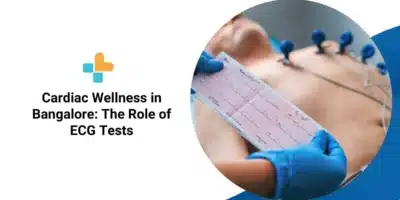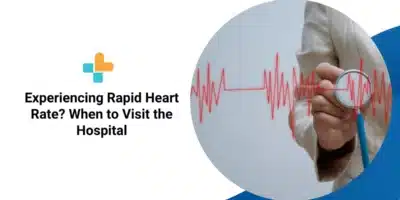Our heart beat is one of the most satisfying things to listen to, right? It signifies life and it gives us the reassuring feeling that everything is alright.
The heart beat is also one of the first indicators of heart disease like high blood pressure, heart attack etc. When the heartbeat is irregular, it can be detected by a doctor and this condition is called arrhythmia. To keep our body functioning well, it’s important that the heart beats in the right rhythm. One of the ways to do this is using a pacemaker.
The pacemaker is a small device which is placed under the skin and connected to the heart. Whenever it detects that the heart is not beating correctly, it sends an impulse to the heart which creates a beat and gets the heart back to the correct rhythm.
There are many questions surrounding what you can do and what you should not do when you have a pacemaker. Can I use a mobile phone or not? Is it okay to go through a metal detector at the airport? When should I call the doctor? etc.. This article is an attempt to clear all your questions about after pacemaker surgery.
Things you should remember if you have had a pacemaker implanted
1. Avoid heavy lifting
This should be avoided immediately after any surgery, not just for pacemakers. Lifting heavy weights puts a strain on your heart and that’s not something you should be doing after surgery.
You could lift moderate weights after 3 months of surgery, but it’s always better to avoid heavy weights. If your daily routine consists of lifting weights, please seek help from your family members so that you can avoid this strain.
2. Walking is your best exercise
One of the common questions that people have is – How do I exercise when I have a pacemaker? Is it safe?
Well, overstraining yourself is definitely something you should be doing. But, to keep a healthy heart, exercising is important. The best way to exercise in this case is to go for a walk.
You may resume more forms of exercising like swimming, cycling after some months of surgery but even then, it is wise to keep it light.
3. Be cautious around machines
The pacemaker sends electrical signals to your heart. A magnet, when brought too close, interferes with these electric signals. That’s why it’s important to be careful around machines.
Here’s what you can do:
- You can use microwaves, hair dryers, remote controls etc but do keep them at a safe distance
- You can use a mobile phone. But, do not keep it in your shirt pocket near the pacemaker.
- While using the mobile phone, you should use the ear farther away from the pacemaker
- Maintain a good distance of at least 12 inches from devices like drills, speakers, radios etc
- A running car engine also can create interference. So, avoid bending over the hood of a car which is on.
- Avoid using pillows, massagers which use magnetic therapy
4. Transmitters and Electric Power lines
While it is safe to be walking near them, prolonged exposure is not advisable. So, if you have to walk by a transmitter, don’t worry. But, don’t linger either.
Same goes for electric power lines. These may interfere with your pacemaker if you’re exposed to them for a long time. Staying away as much as possible would be the best thing to do.
5. Metal detectors and security screening
It’s safe to be around metal detectors as long as you are maintaining a safe distance from them.
Don’t worry, you won’t be setting off any alarms at the airport security check. And your pacemaker will also be perfectly fine. Just try to keep it really quick so that you are not exposed for too long.
The hand-held devices used for security check are not safe for you though. So, you must show your pacemaker card and request them to search you manually rather than use a hand-held device.
6. Medical Procedures and Tests
It’s best to let your doctors and everyone who treats you know that you have a pacemaker. Medical tests will then be prescribed keeping this in mind.
While blood tests and other normal diagnostic tests are fine, any tests involving machines should be done only after consulting your doctor.
MRI scans are not allowed when you have a pacemaker.
Some procedures like Lithotripsy (used to break and remove kidney stones), cancer radiation treatment etc need to be avoided.
Dental X rays, dental drilling, ultrasounds of abdomen, CT scans are safe for you. But as a precaution, consult your doctor before undergoing any of these tests/procedures.
7. Tight clothing and crowds
It’s best to avoid anything that might hurt the pacemaker site.
Avoid wearing too tight clothing. Always opt for comfortable clothes which are roomy enough to not let your pacemaker jut out.
Avoiding crowds that might be rough for your pacemaker site is a good idea. You, yourself also should keep in mind the position of the pacemaker so that you avoid being rough or hurting the area.
8. When to call the doctor?
Typically, a pacemaker can be used for 5 to 10 years without any problems. But there are situations when you’ll need to call your doctor to make sure it is functioning okay.
Reach out to your doctor if:
- Your heart rate drops below the lowest rate set for your pacemaker
- Experience symptoms of an abnormal heart rhythm
- There is swelling, redness or pus from the pacemaker incision site
- You notice new symptoms that you had before your pacemaker
Our heart is the most important organ of your body. Preventing heart disease from occurring is easy if you know of its symptoms. Spread the word!
This is a video of Dr S.S. Ramesha, a cardiologist atAyu Health having 47 years of experience, talking about heart disease and how we can identify it. Watch it to know how heart disease can be taken care of at an early stage.
Dr. S. S. Ramesha and many more experienced specialist doctors have been changing the lives of patients with their transformative treatments. To know more, connect with Ayu Health at 08069489584.
Our Hospital Locations
Cardiology Surgery Hospitals in Chandigarh | Cardiology Surgery Hospitals in Bangalore | Cardiology Surgery Hospitals in Jaipur | Cardiology Surgery Hospitals in NCR | Cardiology Surgery Hospitals in Hyderabad
Our Doctors
Cardiology Surgery Doctors in Chandigarh | Cardiology Surgery Doctors in Bangalore | Cardiology Surgery Doctors in Jaipur | Cardiology Surgery Doctors in NCR | Cardiology Surgery Doctors in Hyderabad
About the Author

Dr. Darshan Krishnappa
Dr. Darshan Krishnappa is a renowned cardiologist currently practicing at Ayu Health, Bangalore.
Dr. Darshan Krishnappa is a Cardiologist with 7 years of experience. He completed his MD in Internal Medicine from the prestigious All India Institute of Medical Sciences, New Delhi. He is specialized in cardiology.




